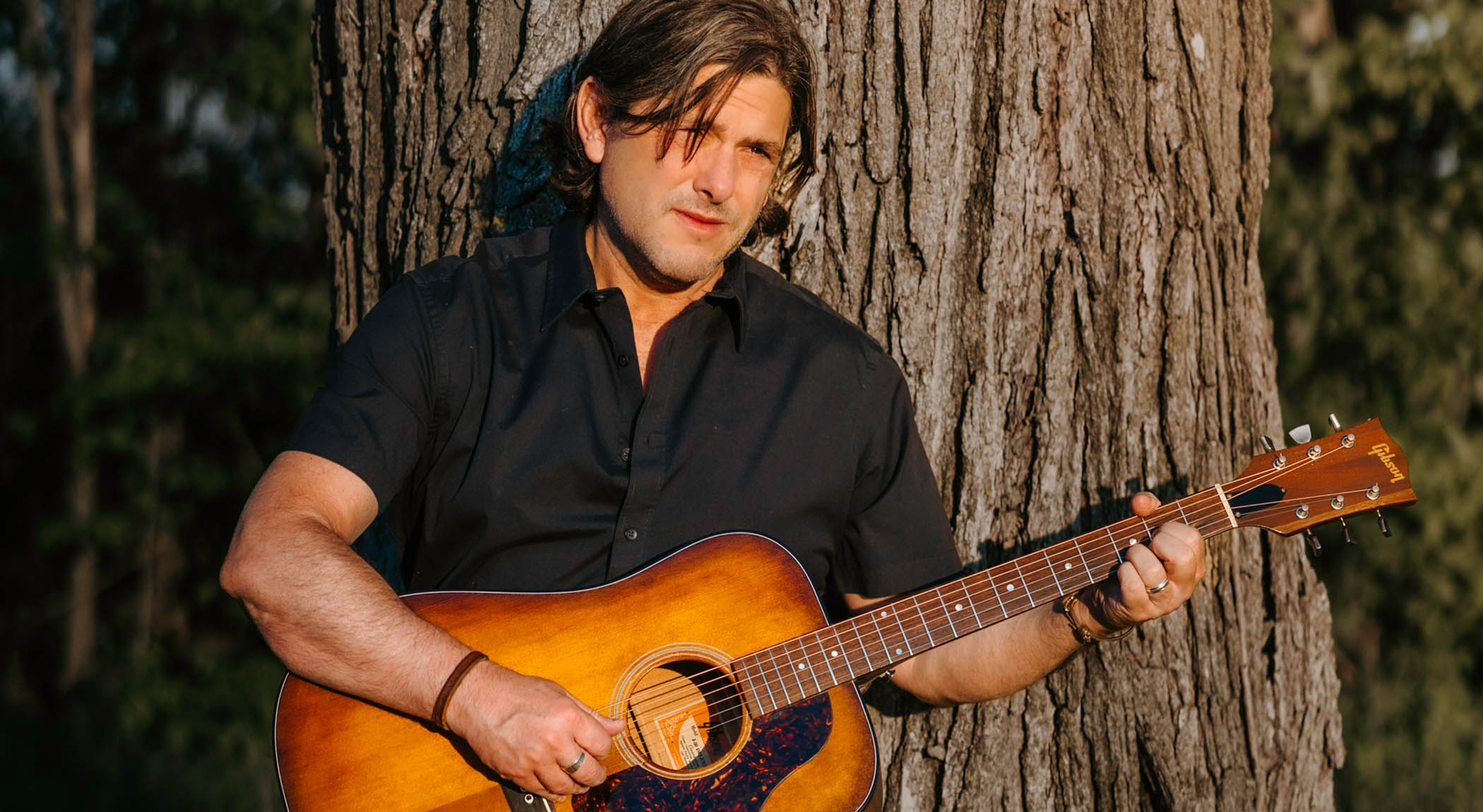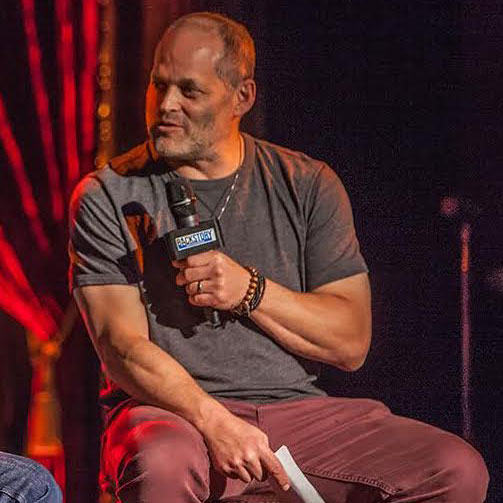“When Clarence White entered the band, it elevated their guitar work. White and Roger McGuinn were electrifying”: Christian Parker on the Byrds’ legacy as folk-rock trailblazers, gear innovators and righteous players in their own right

The Byrds were a massively influential group whose legacy has faded somewhat over the years, at least in part due to a steady turnover of members and their exploration of a variety of styles.
But from their debut in 1965 until they broke up for good in 1973, the Byrds helped create and popularize folk-rock, starting with their reworking of Bob Dylan’s Mr. Tambourine Man, the success of which helped push Dylan to go electric.
Three years later, they helped invent country-rock with Sweetheart of the Radio, which featured singer/songwriter Gram Parsons. His tenure was short-lived, however, as he was soon replaced by Clarence White, a blazing Telecaster player and all-around bluegrass legend who had worked with the band since 1967’s masterful Younger Than Yesterday.
White and late-period Byrds drummer/multi-instrumentalist Gene Parsons (no relation to Gram) invented the B-bender, a string-pulling device that helped White achieve otherwise-impossible sounds on his Tele.
And while CSN&Y legend David Crosby was a founding Byrd, Roger McGuinn – best known for his ringing 12-string Rickenbacker 360 sound – was the only member to be a part of every iteration of the band. His songs in particular had a huge impact on Tom Petty and R.E.M.
Upstate New York guitarist Christian Parker loves the Byrds’ music so much that he has now recorded two consecutive albums full of it: Sweethearts, a tribute to Sweetheart of the Rodeo, and Change Is Now: A Tribute to the Byrds, an all-encompassing salute to the band, focused more on the 12-string McGuinn sound.
The songs on the album, some of which were recorded with session musicians who played on the original versions of the songs, span the band’s entire career. His versions are true to the originals while being distinctly his own.
All the latest guitar news, interviews, lessons, reviews, deals and more, direct to your inbox!
Why do the Byrds mean so much to you?
“I appreciated the Byrds’ musical diversity, starting with folk-rock and then country-rock. Their influence shaped my musical journey and guided my songwriting.”
When you did Sweethearts, did you plan on doing another volume?
“Originally, I was going to make one Byrds tribute album. I recorded Gene Clark’s She Don’t Care About Time when I started the project. We were thrilled to get Earl Poole Ball, the original piano player [from Sweetheart of the Rodeo], to track Life in Prison.
Clarence introduced the B-bender Telecaster... He wanted to emulate a pedal steel guitar and blended his bluegrass/fiddle style. He pioneered a style that’s heard even today in players like Brad Paisley
“After some time, we decided to record the entire Sweetheart of the Rodeo album after Earl suggested we do it in its entirety. We had many earlier songs completed for Change Is Now, so making it a two-volume set seemed fitting.”
The Byrds went through a lot of lineups and musical changes. Can you discuss how some of the various guitarists impacted you?
“The first member to leave was Gene Clark, an excellent songwriter whose songs are some of the Byrds’ best. Dave Crosby was next in line to leave and form Crosby, Stills & Nash. When Clarence White entered the band, it elevated their guitar work. White and Roger McGuinn were electrifying.
“Clarence introduced the B-bender Telecaster, which pulled the B string a whole step by using a mechanism installed by Gene Parsons. He wanted to emulate a pedal steel guitar and blended his bluegrass/fiddle style. He pioneered a style that’s heard even today in players like Brad Paisley.”
Are you playing the B-bender on this album?
“I play it on Ballad of Easy Rider, but Chris Larcombe of Manchester, England, plays on the other bender songs. He has White’s articulated sound down; he does it justice.”
Tell me about that and the other guitars on Change Is Now.
“I played the bender on Ballad of Easy Rider since it was my favorite song. Originally, [the Byrds] cut the bender solo out of the studio version, and I felt it needed to be there on my version – so I played it.
“As for other guitars on the album, I played a Gretsch Tennessee Rose, an Epiphone Casino and six- and 12-string Martins. Gary Jacob plays the majority of 12-string Rickenbacker electric, which was McGuinn’s signature sound. We both play 12-string Rickenbackers on the title track – almost like a double tracking.”
Do you carefully pick the instrument to match the era and the material?
“Yes; I did have some specific thoughts on the gear and the production. I tried to honor the songs and keep them close to the original while improving their sonic quality with modern recording techniques. Our main objective was to get a great vocal performance, then drums and bass guitar, and make the guitar work stand out in the mix.”
Can you tell me about the other musicians on the tracks? How many played on the Byrds’ albums? What did working with them bring you?
“We had Earl Poole Ball on piano and JayDee Maness on pedal steel guitar. They both were on Sweetheart of the Rodeo [Lloyd Green also plays pedal steel on the original album], and JayDee went on to play with Chris Hillman in the Desert Rose Band years later.
“I was honored to have them. I never thought I’d work with these gentlemen and record a classic album from start to finish. I learned a lot in the process, specifically that everyone needs to stay in their lane. Don’t play over top of each other; know your place.”
Is it hard to straddle the line of being true to the material while expressing yourself?
“Honestly, it didn’t seem too difficult to be me. I can only sing how I sing and play how I play. I love the material, so it made it a fun project.”
Can you talk a bit about your original music and how it has been impacted by the Byrds’ music?
I’ve been a songwriter for over 30 years, and the early Byrds’ 12-string sound was on all my earlier recordings in my 20s. I was drawn to McGuinn’s guitar work — and Tom Petty. In 1990, they recorded a song called King of the Hill [from McGuinn’s 1991 album, Back from Rio], which had every element I loved about the Byrds and Petty.
Describe what each of these Byrds members means to you. David Crosby.
“His open tunings and fingerpicking, as well as his beautiful harmonies.”
Roger McGuinn.
“His leadership in the Byrds, his banjo-style picking on the 12-string electric songs like Mr. Tambourine Man and Turn! Turn! Turn! (To Everything There Is a Season).”
Gene Clark.
“His songwriting and melodies. He’s one of my favorite songwriters.”
Clarence White.
“His genius on the guitar; he never played the same thing twice and kept getting better until his untimely death in 1973.”
Gene Parsons.
“His drumming was locked in with Clarence; he machined the B-bender and installed it in Clarence’s guitar, which Marty Stuart now owns.”
- Change Is Now: A Tribute to the Byrds and Sweethearts: A Tribute to the Byrds' Sweetheart of the Rodeo are out now via Edgewater Music Group.
Alan Paul is the author of three books, Texas Flood: The Inside Story of Stevie Ray Vaughan, One Way Way Out: The Inside Story of the Allman Brothers Band – which were both New York Times bestsellers – and Big in China: My Unlikely Adventures Raising a Family, Playing the Blues and Becoming a Star in Beijing, a memoir about raising a family in Beijing and forming a Chinese blues band that toured the nation. He’s been associated with Guitar World for 30 years, serving as Managing Editor from 1991-96. He plays in two bands: Big in China and Friends of the Brothers, with Guitar World’s Andy Aledort.





